If you are looking to start your garden, there are certain things you must do to ensure that it thrives. Apart from choosing a location with the right soil for your plants, you need to fence your garden. The main purpose of fencing your garden is to keep stray animals out and protect your plants.
So, how high should a garden fence be? A garden fence is usually 2 – 3 foot high. But this range is not the limit. Garden fences can be built higher depending on the types of animals posing a threat to the garden. Some animals can jump over a 3-foot fence easily. Hence, the need to make some garden fences taller.
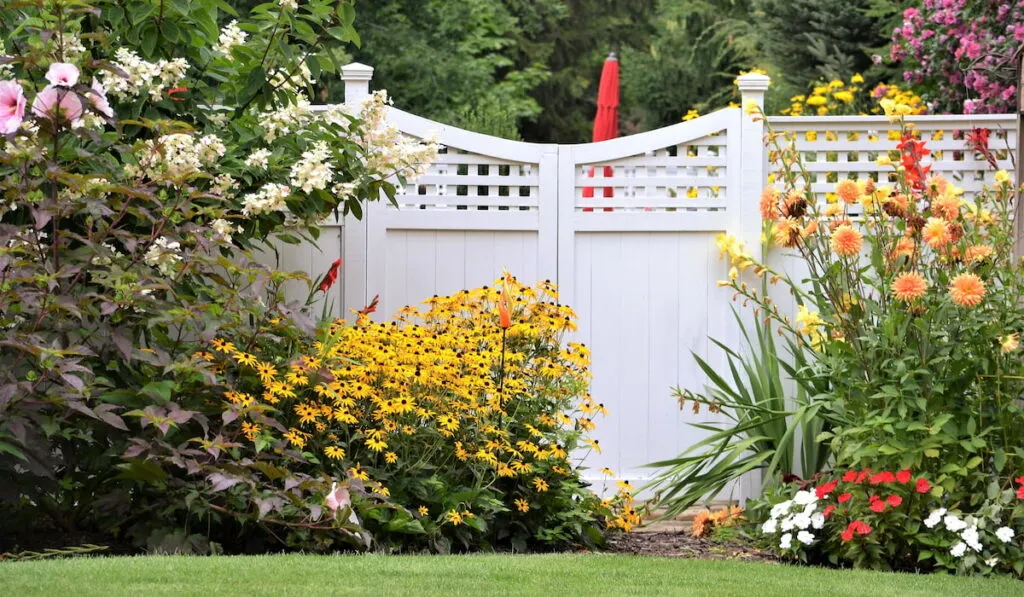
There are many factors to consider when constructing your fence. These factors are discussed in the ensuing paragraphs.
Table of Contents
Choosing the Right Height for Your Garden Fence
As hinted earlier, one factor you have to consider when building your fence is the type of animals you intend to deny entry. The distribution of animals differs from one vicinity to another. Some animals are more common in some areas than in other areas. This is something you have to note before building your fence.
You have to ask yourself, “What types of animals will pose a threat to my garden in this place?” Then you come up with a list of these animals. The animal with the highest jump power on this list will likely determine the height of your fence.
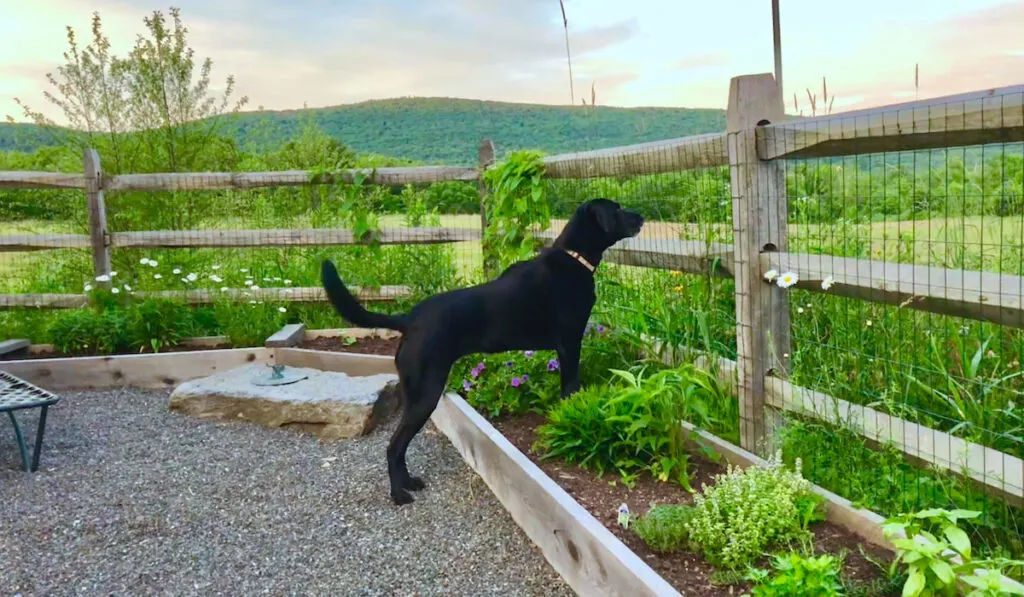
Animals to Keep Out of Your Garden
If you do not have a list or might not be able to come up with a list, fret not. The following are animals gardeners commonly try to keep out of their garden:
- Rabbits – rabbits usually cause damages to your garden by eating vegetables. They usually leave clean sharp edges on the plants they attack. Rabbits feed late at night or very early in the morning.
- Squirrels – squirrels and chipmunks damage gardens in a similar manner. They are more likely to attack fruits and berries instead of vegetables. They also love seeds and would come after your garden when you have just planted seeds. They commonly attack late at night and early in the morning.
- Chickens – chickens would also go after seeds in your garden, especially grain seeds. They would scrape the ground in search of worms, seeds, and anything they can eat. So if you have just seeded your garden, they could do some damage. They could also dig your plants up while scratching the ground for food and peck the leaves.
- Dogs – dogs can just be dogs in your garden. They could lay on the plants, trample the plants, or uproot the plants. They could also pee on the plants or take a dump in your garden.
- Goats – goats will eat almost any type of foliage. Even thorny ones and poison ivy. While goats can be useful organic weed removers, they could also eat your cultivated plants. It’s usually easy to spot them since they feed during the day and are sometimes noisy.
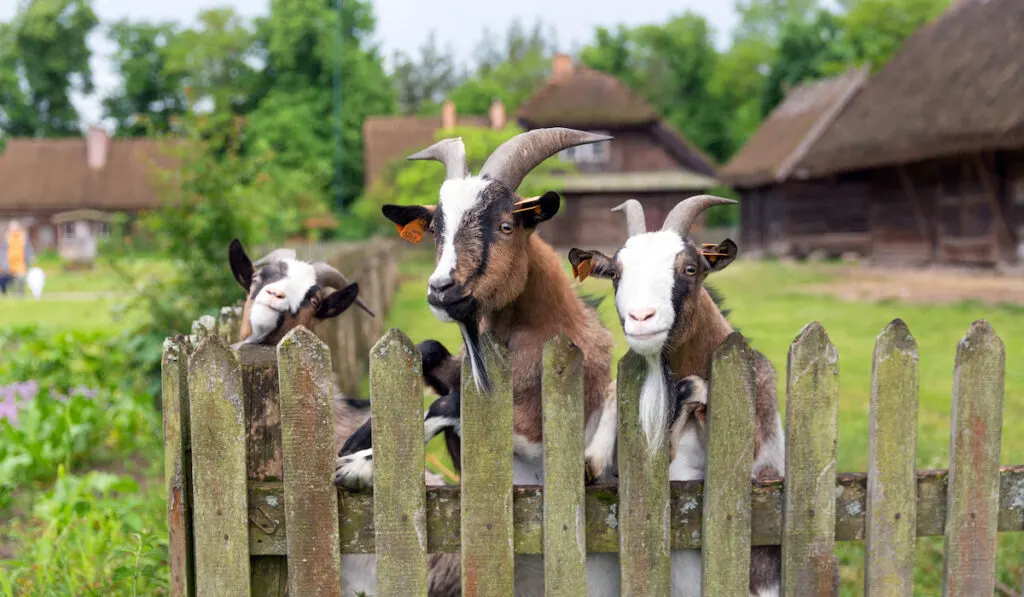
- Sheep – sheep cause damages by eating fruits, plants, and shrubs. They also trample the plants causing you to lose your efforts in minutes.
- Deer – deer are a special case. It can be tough to keep them out of your garden. They consume a wide range of plants, vegetables, and fruits. They can jump as high as 8 foot and this makes building a fence quite challenging.
- Horses – horses are herbivores so they will definitely come after your plants. The good news is horses are quite selective. Some garden plants are toxic to them while some have an unpleasant taste. So horses may not be very hard to deter from your garden.
- Cattles – Cattles are herbivorous. They can eat your plants or stamp on them to cause damage to your garden.
- Cats – cats are carnivorous so they might not eat your plants. However, they can still damage your garden. They can pee or take a dump on your garden beds. Their fecal matter can introduce parasitic worms to the soil and these worms might destroy your plants.
Recommended Garden Fence Heights
For each of the animals mentioned above, these are the recommended heights for your garden fence:
| Animal Type | Recommended Garden Fence Height (minimum) |
| Rabbits | 2 foot. 3 foot for jackrabbits |
| Squirrels | 7 foot |
| Chickens | 6 foot |
| Dogs | 6 foot |
| Goats | 5 foot |
| Sheep | 4 foot |
| Deer | 8 foot |
| Horses | 5 foot |
| Cattles | 4 foot |
| Cats | 6 foot |
While building your fence, you should ensure that the length of the fence material is about 1 foot longer than the recommended height.
Also be sure that your garden gate is constructed just as tall to keep the desired animal out. This deer height garden fence, for example, would be quickly accessed by any deer willing to jump over the low gate.
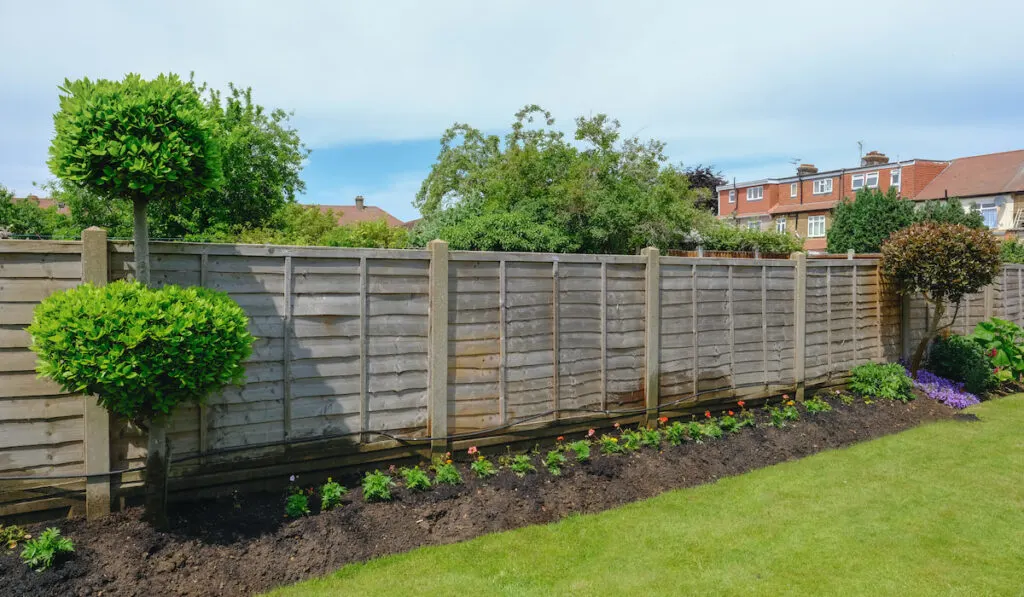
Burrowing animals like rabbits and squirrels can burrow their way beneath the fence. To prevent this, bury the fence at least 6 inches into the ground.
Animals like sheep, goats, cats, and dogs may try to go through the mesh or rails of the fence. This can be avoided by making the space between the rails less than 6 inches. Also, if you are using nets for your fence, opt for those with tiny meshes.
Common Garden Fence Materials
Materials commonly used in constructing garden fences include:
Wood
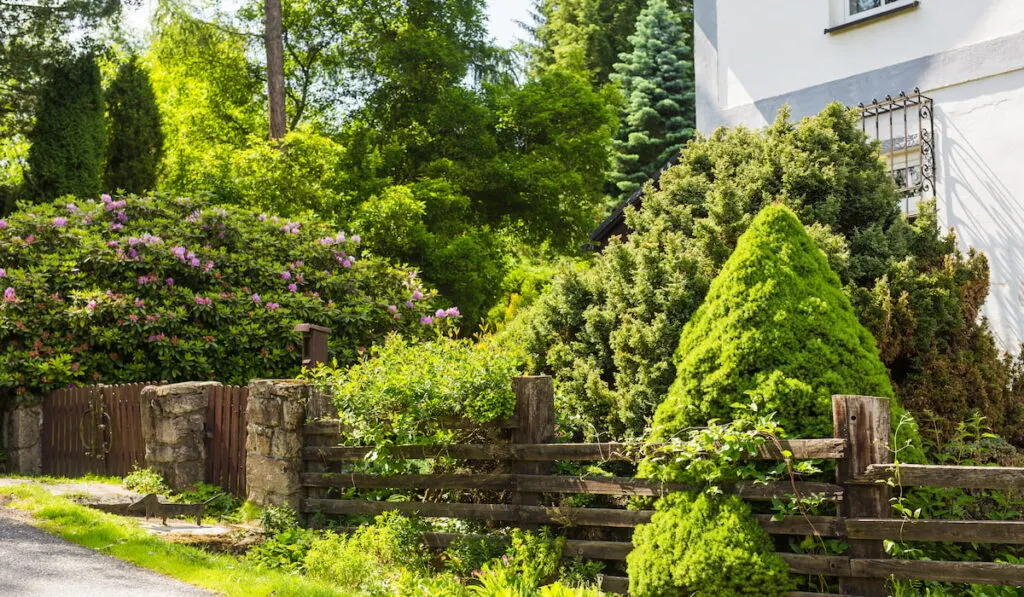
Many types of woods are used as fence posts in garden fences. They can be treated or untreated. But treated wood lasts longer than untreated ones. Redwood and Pine are some woods with very high durability.
Steel
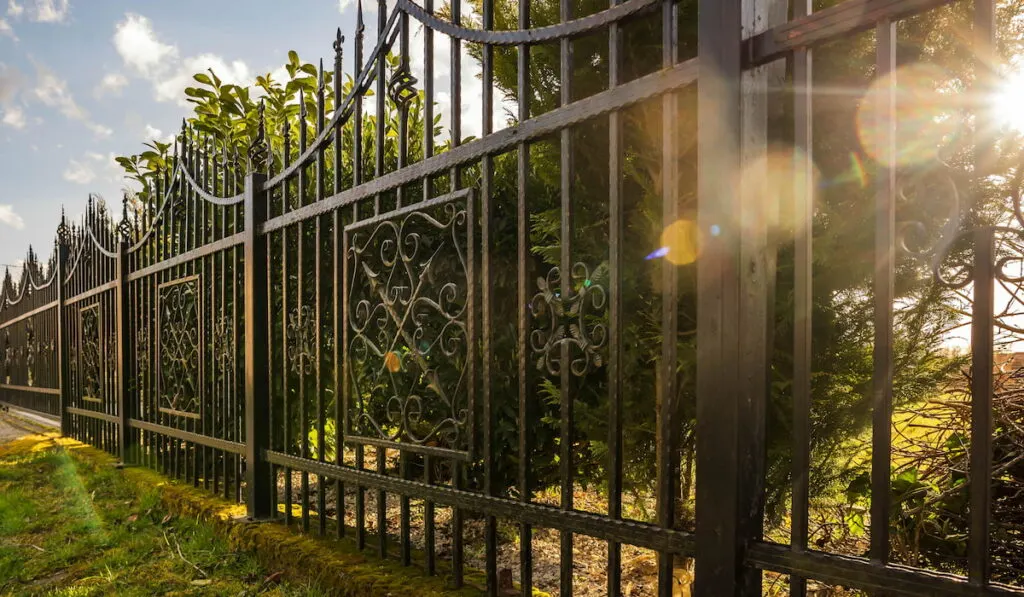
Steel fence posts are usually long-lasting. You can use them for an average of 20 years. But if not well installed, they can be uprooted by livestock.
PVC/Vinyl
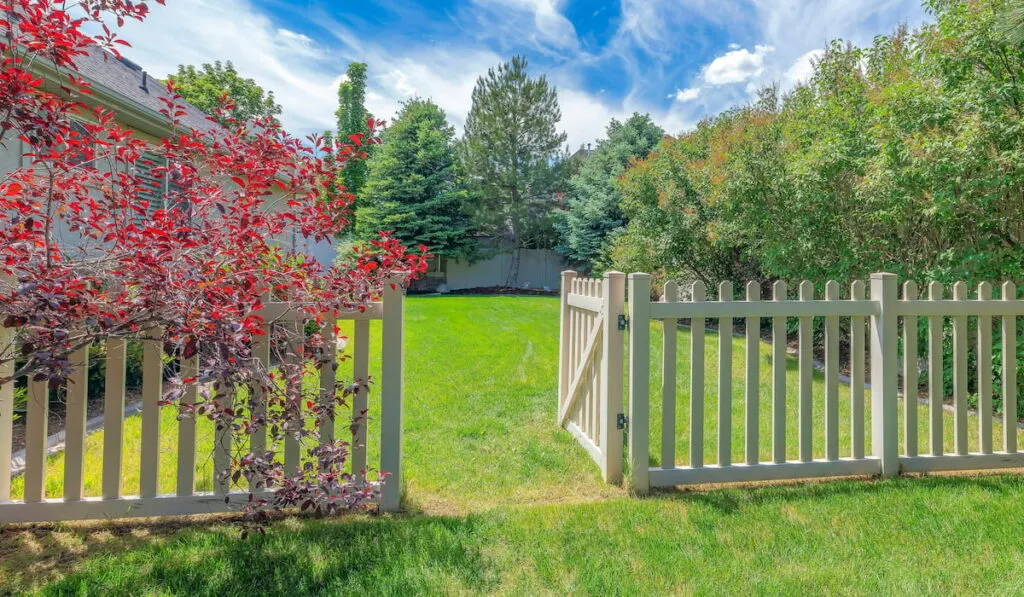
Vinyl fences are usually very attractive. They are more expensive than wood fences and if well treated, they can last very long. But they can easily be damaged by rodents like squirrels ad chipmunks.
Fiberglass
Fiberglass offers similar strength and durability as steel. It is more flexible than steel and is commonly used in electric fencing. It does not conduct electricity hence it needs no insulation.
Your garden fence should always be built high enough to keep out all intrusive animals. The height should be such that none of the animals you intend to keep out can jump over it. The strength of the fence material and the depth of the fence should also be considered. These factors together determine the efficiency of your garden fence.
Resources
- https://extension.uga.edu/publications/detail.html?number=C774
- https://www.pubs.ext.vt.edu/442/442-131/442-131.html
- https://icatcare.org/advice/fencing-in-your-garden
- https://extension.uga.edu/publications/detail.html?number=B1192
- https://ucanr.edu/blogs/blogcore/postdetail.cfm?postnum=6927
- https://www.chelseagreen.com/2018/good-fences-and-good-gates-make-good-goats/
- https://www.trentwoodfencingoxfordshire.co.uk/news/dog-proof-garden-fencing.htm
- https://silkie.org/how-high-do-fences-need-to-be-for-chickens.html
- http://www.birdsforever.com/bird-feeder-squirrel-problems.html
- https://homeguides.sfgate.com/easy-fence-keep-bunnies-out-85482.html
- https://ag.umass.edu/home-lawn-garden/fact-sheets/whats-eating-my-vegetables
- https://learn.eartheasy.com/articles/how-to-keep-animal-pests-out-of-your-garden/
- https://savvygardening.com/deer-proof-gardens/
